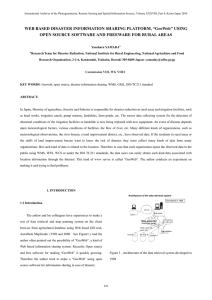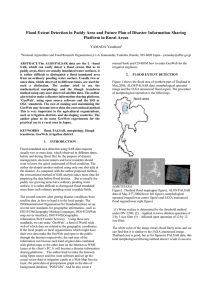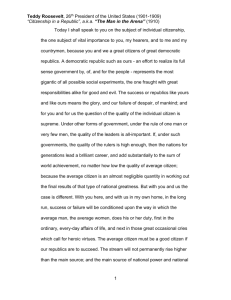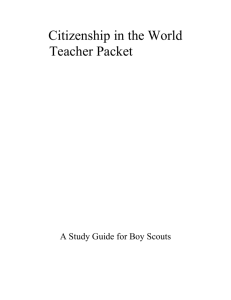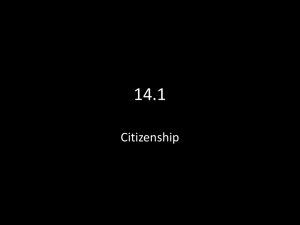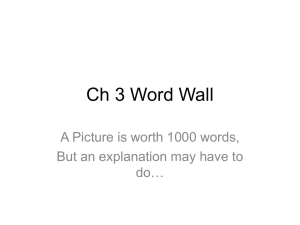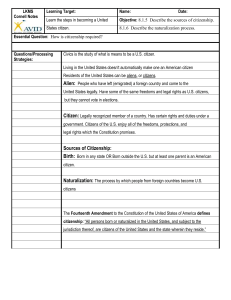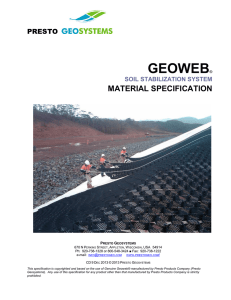Position Paper Discussion
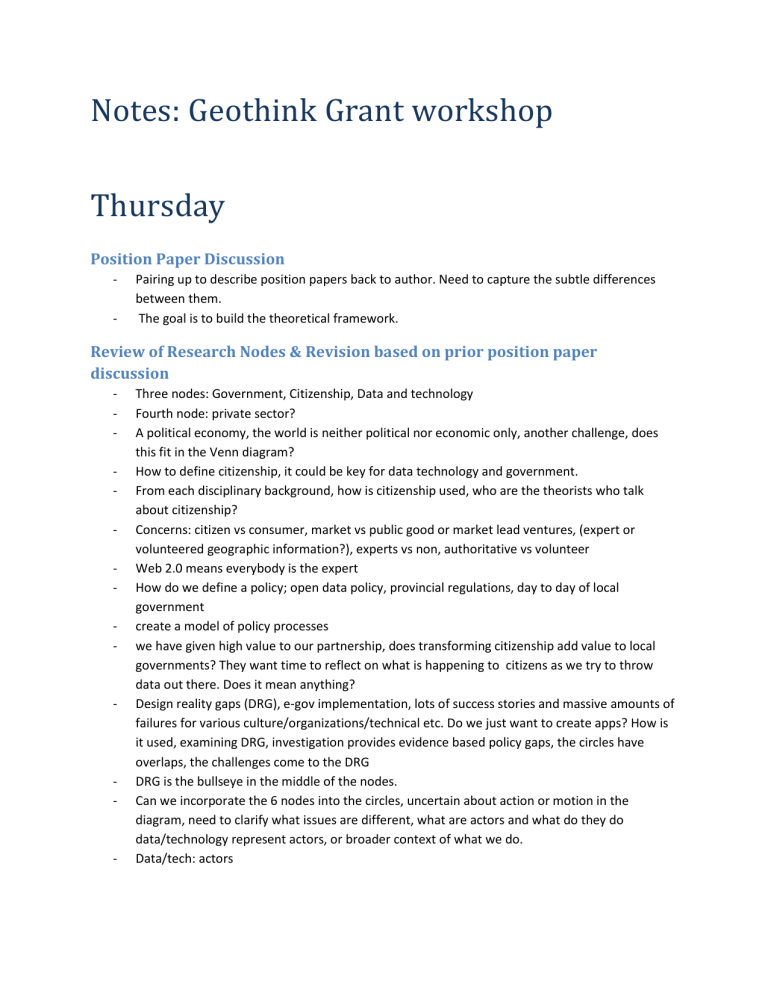
Notes: Geothink Grant workshop
Thursday
Position Paper Discussion
Pairing up to describe position papers back to author. Need to capture the subtle differences between them.
The goal is to build the theoretical framework.
Review of Research Nodes & Revision based on prior position paper discussion
Three nodes: Government, Citizenship, Data and technology
Fourth node: private sector?
A political economy, the world is neither political nor economic only, another challenge, does this fit in the Venn diagram?
How to define citizenship, it could be key for data technology and government.
From each disciplinary background, how is citizenship used, who are the theorists who talk about citizenship?
Concerns: citizen vs consumer, market vs public good or market lead ventures, (expert or volunteered geographic information?), experts vs non, authoritative vs volunteer
Web 2.0 means everybody is the expert
How do we define a policy; open data policy, provincial regulations, day to day of local government
create a model of policy processes
we have given high value to our partnership, does transforming citizenship add value to local governments? They want time to reflect on what is happening to citizens as we try to throw data out there. Does it mean anything?
Design reality gaps (DRG), e-gov implementation, lots of success stories and massive amounts of failures for various culture/organizations/technical etc. Do we just want to create apps? How is it used, examining DRG, investigation provides evidence based policy gaps, the circles have overlaps, the challenges come to the DRG
DRG is the bullseye in the middle of the nodes.
Can we incorporate the 6 nodes into the circles, uncertain about action or motion in the diagram, need to clarify what issues are different, what are actors and what do they do data/technology represent actors, or broader context of what we do.
Data/tech: actors
Is the weakness from theory from the framework or an overarching theoretical foundation.
Within that broad framework we are doing theory research to cover these issues.
ANT – actor network theory, objects become actors. “social shaping of technology” best described by Bruno Latour, who talked about co production of the bicycle.
CBR principles, follows same as PAR, because our partners are communities crafted as government we are doing research with and for.
We know problematic nature of this, not sure how legal academics, developing versus analyzing policies
Conflict with grant project: want user advice that is practicing law which is not what we do. We don’t face the legal, such as getting sued over advice, we need to be up front, formulate best practices or understanding the dynamics of creative commons licenses.
The territory, the consultant type of model, our advice may work or not. We need to say “we are not consultants’ this is research we are not providing a service.
With rapid response think tank-need to manage & discuss with partners. Collective decide that we are not going to be consultants –vision at beginning.
Advancing theory and shaping policy at the same time. We have to be responsive to partners needs and partners want policy shaping.
Primary driven on social shaping-is the right way to go, follow-up with CBR. Conversation, worded around objectives now-Methodical approaches, we have 2 pages, on theory, with a wrap up statement of its appropriateness with 2 pages of methods, Overall conclusion paragraph.
Focus on communications, don’t use to complicated theories, CBR/PAR choose one.
SSHRC program officer, tension needs to be read by everyone, but needs to satisfy domain of reviews.
OUR THEORITICAL FRAMEWORK> OUR FEASIBILITY OUR etc.
I get how to convey this to general social scientists.
Digital Humanities committee, & Digital Economy, smaller amount of grants to review.
Difference btw CBR /PAR
Position papers-research questions, how the questions fit.
1.
why do people add info to maps, what benefits/risks do they perceive, what are the fundamental & specific impacts of these projects.
2.
What r the short-long-term impacts of using these tools with government &others.
3.
What r the elements of geoweb literacy, where do we ask it/operationalize it how are citizens using these techs how do governments imagine this, how do we understand this, why are citizens how are citizens.
4.
What are the failures & unintended consequences of use: why aren’t they using the away we intended?
5.
Gets to failures, r they using it as intended-what r the unintended.
D&P-linked into this idea, hyped into promoting development, the opport, have not been actalized, is the geoweb different then other tech hopes, economic growth/development, is this the same story, we tend to overlook
6.
Broadly, how does it help or hinder government/citizens?
7.
How does the government hinder it?
8.
Factors that determine success of adoption or impacts- these, design flaw, etc legal framework, preventing release of data. Organizational development, innovation in governance. Loaded terms Leslie wants to unpack this term.?
9.
How do privacy & IP laws, impact on government citizen interactions on the geoweb.
10.
Who owns, VGI when given to gov? and who is able to use it and in what context. ( we can have 2 tiered questions). Often linked to democracy etc, became which business’s can be created, we want to sell this, so we need accuracy. Need to rely on citizen contributions, with fund cuts etc. with crown copyright law, technically under copyright law, they can claim the own all the data that is contributed. -most legal issues can be resolved with license or statements on site, does not resolve political quest. Implications for citizenship, rights based or territory
11.
What do governments, do with digital info?
12.
What are the implications of citizenship?
can people from other jurisdictions participate, territory
authenticity of information, related to VGI
13.
How is the authortive & credibility determined through legal norms.
How should those norms be attributed to the geoweb.
is identity, the most important thing, person contributing or contribution.
14.
Accuracy, author, credibility, authenticity, contribution, or contributor, anonymity,
15.
Changing, nature of participation (eg. Voting)
Why are people participating, motivations and rational?
decision-making,
research into motivations, so far based on OSM contributions & TOM TOM.
maybe app specific, why are they interested, driving organizational decision.
16.
What is the Geoweb? Is it a map? Is it also social networking? It orig a map or any digital information that contains locations
Define Geoweb, specifically in grant, Leslie new term, good to get Leslie to define in grant.
information delivered to u based on your location,
cell phones allow u to contribute or get information.
What about the partners quest, how do they fit with ours
Partners interested in these questions, interested in understanding how there projects in gov. fit.
Partners, looking at app plus what kinds of data do we release to public things-funnel to google directly-what r governments there for, BUS times, go to google to plan transportation travel. - ---
Many things not hosted by government, shift of citizen services-private sector or citizenschanging role of the government, What about rural/urban areas? Most are urban or small urban. Quest. Facets of open government, R-open gov. more into procedural and perverted by feds. Ask, should we frame it as open gov. or open data, not as but within the context of, these quests, fit into the context of.
open data, we move into council minutes –open gov. hot new thing
17.
What is the changing role of government with geoweb?
18.
Implications of geoweb for Social Justice?
19.
Is the geoweb a tool for surveillance?
20.
What happens to the information? Daniels octopus example
21.
Define a political economy of the geoweb.
22.
What are the economics of the Geoweb/opendata?
23.
Who is allowed to monetize how? What are the historical antecedents for VGI geoweb?
24.
What is the role of Geoweb in formalized decision-making & planning?
Formulate Theoretical Framework and Methods
- what factors influence the types of modifications
- how is the geoweb being continually reconstructed.
- perhaps it continually changes over time, problematic because web 2.0 is supposed to be a work in progress, always changing-this model is really problematic for governments
Add a question:
-how do dynamic interactions between governments, citizens, private sector influence the developmental trajectory of the geoweb?
Q&A with Rupa from Research Office
In response to our critiques:
1) Reduce themes & nodes a.
inlcude a clear response on why 5yrs for project b.
Provide evidence on how you can the tackle quests. In 5yr with anticipated results c.
Include: # of students training, value added, benefit to Canada etc
2) HQP is very impt, it is 50% of budget a.
Incld. Internships with partners, b.
What novelty can u bring to students ex. Real involvement c.
Different kinds of students (law to geog to communic) d.
Summer Institute, workshops with node leaders, incr skill sets for students/partners i.
1 day workshop to run with academics & students, @ diff instutions
3) Emphasis the breadth of involvement of different kinds of academics from junior to senior etc
4) Evidence of Formal Partnership- a.
Unlimited page numbers (all pdf’s) b.
Include, plans for summer institute, this meetings agenda, any links btw any partners & academic etc.
5) Should we tier partners? a.
I haven’t seen it before, need to make it very clear
6) Do you have a sense of our grant vs. other grants? a.
our partners are more fluid then other grants, we need to address this, what is our plan to deal with it. Incl how we will accommodate change, SSHRC is risk adverse, no risks can be associated with it. * Illustrate that the benefits outweigh risks with partners.
7) Significance of Research, a.
need to demonstrate economic benefits b.
numbers here , like how many ppl use municipal services, worth of industry, etc
8) Knowledge Mobilization Plan a.
Who do we reach, multiple publics, identify stakeholders b.
What do we use, our website, media coverage, reports, white papers, coauthoring with partners for industry pulbications etc.
Governance/Committee
simplify research nodes & governance structure, every node lead by 4 people (?)
Budget
Aprox. $30,000 to each co-applicant for student support, travel, equipment
Expectation of equality across co-applicants (13 total)
Additional funds for workshops etc
Baseline funds for year 1, to recruit for following years.
Budget can be flexible in practice from year to year
Leverage Plan
Institutional support o 1 paragraph of summary for co-applicants to give institutions o letters from each university o in-kind support and cash for workshop hosting o value added-Prof becomes expert in field attracts students o Standardize letters to univ. possible laundry list of leverage items.
Partners, o provide a template letter with examples, including what they will get out of the research, more on that for Friday.
Friday
Partner Engagement Plan: Overview and Addressing Critique from Reviewers
Partners as researchers, you are not our case studies, we are not consultants, Web 2.0 not a canadian model. No room left for traditional organizing in communities, as we talk about community groups, we put in a geographic boundary, but Web 2.0 is not bound.
Products, ie data sets, previously done by government now may be done by non-profits or citizen groups like OpenNorth, admin boundaries for all of Canada.
Geoweb, is the key to sustainability as Geoconnections could end who will sustain it after.
Redundancy, but creativity in redundancy with apps, it does not always matter what the apps are it is the community & process that forms around it. Also, Cities want to know, How do we develop innovation-value of innovation.
Survey of Partners: Preliminary results
-information from students on website
Overview of RRTT and Geothink Website
-information from students on website.
Discussion of partner strategy
Create hierarchy
would it be possible for you to view one of those as a greater importance for what you are doing while recognizing there is overlap?
SSHRC wants its money to be used according to the agreement
Divide partners into non profit, government, university groups, and easier way to figure out the nature of those sectors to the role that any of those partners would participate in.
Way to include all partners in discussion, way to organize it.
Tangible outputs or products a municipality or partner could be working together on. Maybe an activity or output based project in order to address timing, what commitments do we have to make, help in terms of channeling how people are involved.
There can be considerable overlap, private sector may have different outcomes or needs, is this grant with a set number of outcomes. If we had outcomes like we want to have x number of popular articles on the value of open data. If we want to have a set of different kinds of evaluation strategies then there could be people involved in that. Things like evaluation strategy has a resonance in gov, citi partic, and data and tech
Is every partner involved in each node? One on one? Negotiate organizational structure
Sending a package to the partners to provide a comprehensive source for what we expect, with aids.
Risks to being interdsisciplinary. Costs to publications, have to detail unintended consequences: what do we do if ‘x’ happens. What will happen if we get new municipal partners?
Need to ‘sell’ more in proposal e.g. by talking about the value of the geoweb, open data, etc.
Have to switch from talking about saving costs, to also generating value.
Need reliability, completeness, availability of information
What Ottawa would want in five years: Need to come up with direction, data format standards, establish partnership guide
Looking for guidance***, Canadian geomatics community should have digestible internal documents.
Partner Questions
1.What happens to our notion of community, jurisdiction with open data/Geoweb? For example, Open
North’s Represent, OSM?
2.Changing roles of government, not just delegation.
3.How can an ‘ecosystem’ of data, schema, standards, apps, APIs, platforms be created in a sustainable/non-redundant manner? Should it? For example, who will sustain Canadian Geospatial data infrastructure?
4.How do cities promote innovation via the Geoweb?
5.Connection/disconnection among levels of gov, particularly around open data (such as licenses).
6.What does openness, participation mean? For example, ability to manipulate data.
7.How can geoweb be used to facilitate G2G relations (eg, data exchange, ESRI GFX)?
8.What is the role of a schema in facilitating opendata?
9.Use of ESRIs community map project and other geodata repositories.
10.What challenges are citizen projects having?
11.What types of information is needed to understand data?
12.How to evaluate geoweb use/effectiveness over short/medium/long term?
Formalizing Partner Plan
Three questions for partners:
1) How do you see this network working best for you?
2) What do you want to get out of it at the end of 5 years or over the course of?
3) What type of audience do you want to reach?
Neptis: interested in government to government relationships (q7)
Esri: interested G2G, current project examines different levels of government data, data intergration, want VGI update or fix data. in next phase of GFX, will provide use of community map project
Ottawa: interested in white papers, guidance for projects
Toronto: we’d like to see something we can reference, ulitimate deliverable to present to our council using analysis of data to make decisions e.g. budgets. Audiences – elected officials, internal, public. Can provide, software, space & conference
Mtl Ouvert: how to evaluate portals. What are the criteria under which we should be evaluating open data efforts? (but don’t make websites for us). Pls pay travel and time for us as we have no salary.
Supporting citizens and hackers push government. (from introd) reason to be here, is validity of being in the converstation, as a citizen group, interested in getting into the conversation with cities & geoconnections, we want to see citizens as major drivers in this area. It is a mistake to focus to much on private companies & government, but need to focus where the innovation is happening,
Open North: best practices/policies/technologies to push to govt. and to give to citizens. Evaluation – grids to see how govts. are performing, so we can give them advice on where to go. Audience – cities and citizens. Have the ability to host graduate students for building apps (perhaps). Also, framework to bring people together that are doing this stuff
Geoconnection: look for guidance from this team, documents to geomatic industry, can collaborate on papers, commit 12 days per year.
ESRI, can contribute home for students, internships, data, software development, end user tools, API’s
[side discussion}
Sieber: what are geography students ‘good for’ these days? What should we be doing with our undergraduates – how should we train them?
Pamela: grad students should not be focusing on the app building, but rather in studying it and other apps. Too much time is spent on development
Pare: how specific do we have to be when we say how we’re training students?
Pamela: need to make sure they focus on policy analysis skills etc.
Johnson: emphasise how we can make students more competitive in the job market or for further ed.]
Leczner – how can I serve as community leader to publish in alternative formats and not just academic papers? I’d rather see, a 5-pager on economic context etc. Something the public and elected officials can read.
Conclusion & Next Steps
Next week – plan for finishing. Due date is 1 Nov. Need draft by 1 Oct.
Johnson: next week, we’ll be sending out a package for partners on what to write
